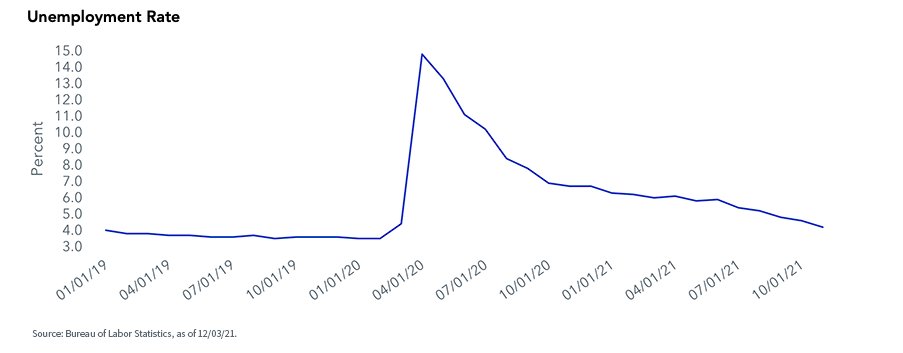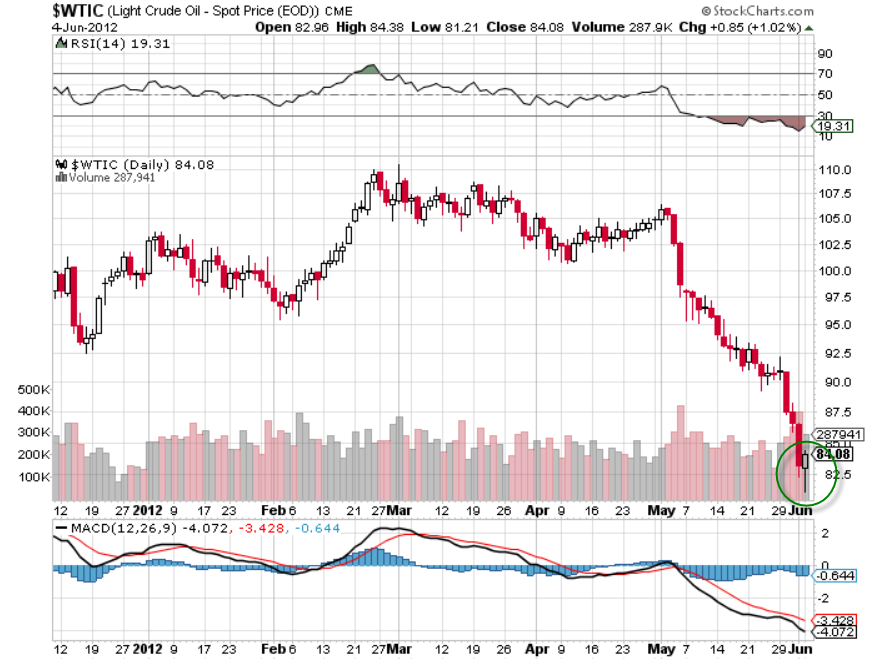By Kevin Flanagan, Head of Fixed Income Strategy
Ever since the introduction of the omicron variant into the news stream, the money and bond markets have been vacillating between focusing on the latest headlines on this front and the more typical fundamental factors, such as the Fed, economy, inflation, etc.
For now, this dynamic will more than likely remain in place, resulting in heightened market volatility. The most recent macro-related headline grabber was the November jobs report. While the numbers did not live up to expectations, the results still revealed an improving labor market.
Without a doubt, new job creation was softer than expected last month when total nonfarm payrolls rose by ‘only’ 210,000. In pre-pandemic times, a gain of this magnitude would have been characterized as ‘solid,’ but when consensus forecasts are calling for an increase of over 500,000, this result is met with disappointment.
However, for all of you statisticians out there, before the seasonal adjustment process was utilized, the actual gain was 778,000.

Payroll Earnings
For the record, there are two parts to the employment report: the establishment survey, which includes payrolls, earnings and hours worked, and the household survey, which contains the jobless rate data.
This latter survey was, in fact, anything but disappointing. Indeed, the unemployment rate fell 0.4 percentage points to 4.2%, the lowest level since pre-pandemic February 2020. In addition, the alternate civilian employment measure surged by over 1.1 million while the number of unemployed plummeted by 542,000.
Let’s turn to the inflation part of the data, namely wages. Average hourly earnings rose at an annual rate of 4.8%, which was a bit below consensus forecasts. However, this gain tied last month’s tally for the highest non-pandemic reading in this data series going back to 2006.
Jobs Data
The big question: did the November jobs data alter the recent narrative that Fed policy is about to become more hawkish? In my opinion, the answer is negative. Chairman Powell & Co. seem to have shifted their focus more toward inflation, at least based on recent public commentary.
On that front, the data remains crystal clear: inflation is not going away any time soon. While longer-dated Treasury yields have been falling of late, the money and bond markets are still leaning toward a quicker end to the Fed’s taper program, followed by the potential for two to three rate hikes next year.
This post first appeared on December 8 on the WisdomTree blog.
Photo Credit: Nicolas Raymond via Flickr Creative Commons
Disclosure
There are risks involved with investing, including possible loss of principal. Foreign investing involves currency, political and economic risk. Funds focusing on a single country, sector and/or funds that emphasize investments in smaller companies may experience greater price volatility. Investments in emerging markets, currency, fixed income and alternative investments include additional risks. Please see the prospectus for discussion of risks.
Past performance is not indicative of future results. This material contains the opinions of the author, which are subject to change, and should not to be considered or interpreted as a recommendation to participate in any particular trading strategy, or deemed to be an offer or sale of any investment product and it should not be relied on as such. There is no guarantee that any strategies discussed will work under all market conditions. This material represents an assessment of the market environment at a specific time and is not intended to be a forecast of future events or a guarantee of future results. This material should not be relied upon as research or investment advice regarding any security in particular. The user of this information assumes the entire risk of any use made of the information provided herein. Neither WisdomTree nor its affiliates, nor Foreside Fund Services, LLC, or its affiliates provide tax or legal advice. Investors seeking tax or legal advice should consult their tax or legal advisor. Unless expressly stated otherwise the opinions, interpretations or findings expressed herein do not necessarily represent the views of WisdomTree or any of its affiliates.



